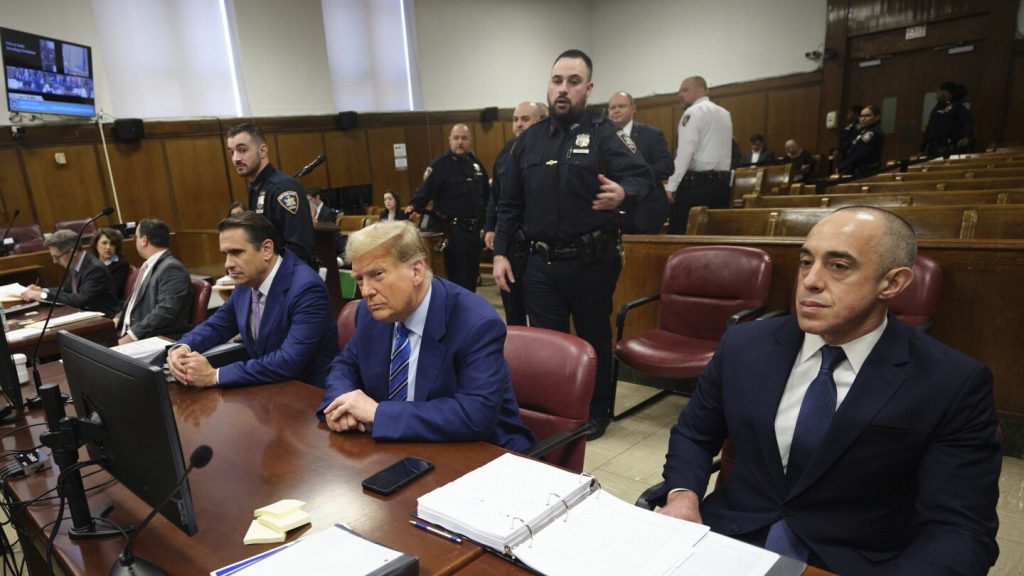Prosecutors and defense lawyers are gearing up to deliver closing arguments in Donald Trump’s hush money trial in New York after over four weeks of testimony. Trump faces 34 felony charges of falsifying business records, each punishable by up to four years in prison. Both sides will present their final arguments to the jury, with prosecutors expected to focus on the credibility of witnesses like Stormy Daniels and Michael Cohen, while the defense aims to cast doubt on the government’s case and Trump’s involvement in the hush money scheme.
Following the closing arguments, Judge Juan M. Merchan will instruct the jury on the law governing the case, outlining what factors they should consider when evaluating Trump’s guilt or innocence. The instructions are crucial in guiding the jury’s deliberations, and both the prosecution and defense had debated various points in seeking to influence the judge’s decision. Prosecutors argued for a broader interpretation of campaign finance laws, while the defense sought to downplay the significance of the hush money payments as they relate to Trump’s motives during the 2016 election.
Once the jury begins deliberating, the process will be conducted behind closed doors in a room set aside for jurors. They can communicate with the court through notes requesting legal guidance or a review of specific testimony. The length of deliberations is uncertain, with no set time limit in place. The jurors will have to reach a unanimous decision on each of the 34 charges for a verdict to be accepted by the judge. If consensus proves elusive, the judge may urge the jury to continue deliberating and reconsider their positions before potentially declaring a mistrial if no agreement is reached.
The outcome of the trial hinges on the credibility of witnesses like Michael Cohen, who implicated Trump in the hush money payments, and Stormy Daniels, whose allegations of an affair with Trump form the basis of the case. The defense’s strategy will likely involve questioning the reliability of these witnesses and emphasizing Trump’s motivations for the payments. The prosecution, on the other hand, will highlight the financial evidence and testimony linking Trump to the scheme. As the trial enters its final phase, the fate of the former president rests in the hands of the jury.
The high stakes and complex legal issues involved in the trial have made it a closely watched case with potential ramifications for Trump’s political future. The verdict, whenever it may come, will have far-reaching implications for Trump and could shape public perception of his conduct during the 2016 election campaign. As the trial reaches its climax with closing arguments and jury deliberations, the nation awaits a resolution to a legal saga that has captivated attention and raised questions about the limits of presidential power and accountability.
In a trial marked by dramatic testimony and legal twists, the closing arguments will serve as a final showdown between the prosecution and defense, offering a chance for both sides to make their case one last time before the jury retires to consider their verdict. The outcome of the trial will not only determine Trump’s legal fate but also carry broader implications for the intersection of politics and the law. As the proceedings draw to a close, the eyes of the nation remain fixed on the courtroom, awaiting the culmination of a trial that has riveted the public and raised profound questions about the nature of justice and accountability in American democracy.


